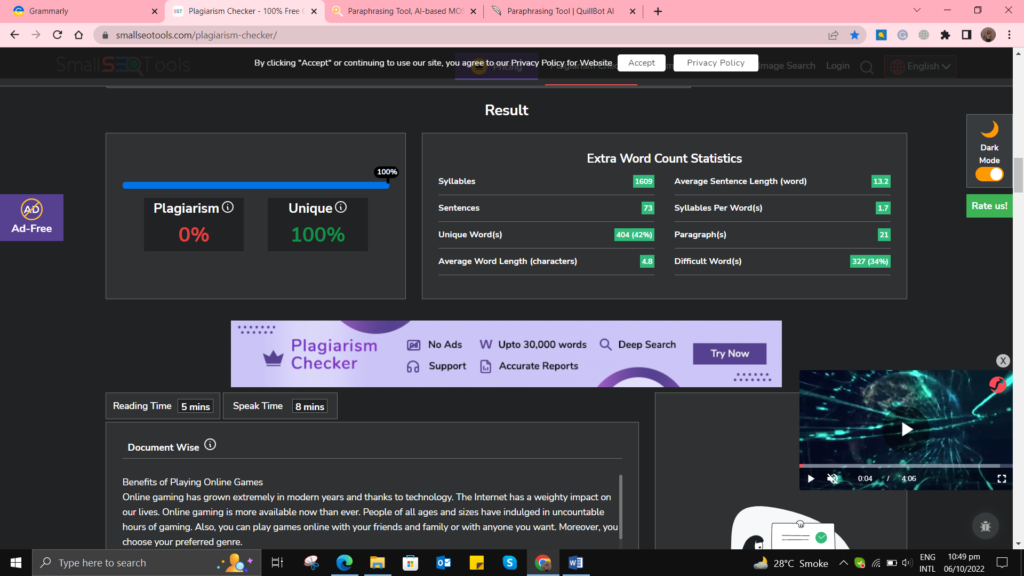Those days are gone when you had to wait in long queues in the bank for banking transactions. All thanks to technology, now there is no such hustle to access banking facilities as it used to be. Whether it’s online shopping, ordering food, online bookings, or online payments, digital banking has made our lives easier. All this can be done anytime, anywhere, with just a few clicks. However, if technology has made the banking process easy for the world, at the same time, it also has increased the risks of online fraud.
You have to be very cautious while making digital transactions because one wrong click can put you in serious financial trouble. Fraudsters are always looking to catch you and steal your money. Remember, with advanced technology, cyber attacks will keep on growing. Therefore, it is very important for you to understand how to protect yourself from scams and threats.
In this guide, we have assembled five important ways that you can use to keep yourself safe from online fraud and make safe online transactions. Keep on reading the piece to learn more!
- Download Verified App
You can transfer money online by sitting in any corner of the world. But, one wrong click can put you in dangerous financial loss. Currently, the way we shop and make transactions have changed and all thanks to mobile apps dramatically. You should always use verified and secure apps or websites whenever performing any financial transaction online. It is possible to commit online banking fraud if you use an unauthorized app or website. To ensure your transactions are secure and easy, always access trusted apps and websites.
Download only official apps from the Google Play Store, Windows App Store, or Apple App Store. Before downloading, make sure you use a secure internet connection like Windstream. In addition to offering upgraded security plans, it protects your devices from malware or viruses and prevents cyber criminals from gaining access to your accounts. Check out this link https://www.localcabledeals.com/windstream/customer-service and avail the best plan that suits your need.
- Passwords Should Be Undisclosed
This is obvious and crucial that you never share passwords with anyone or leave documents that have financial information unattended. Moreover, it is better to keep on changing passwords after every 2 months to keep yourself safe from hackers. Use different combinations of numbers, letters, and special characters for better security, whenever you change your password.
Furthermore, you should regularly change your default password for wireless networks and your default SSID. To protect your network, do not broadcast your SSID and use encryption.
- Protected software for your phone/computer
Well, everyone wants their payments to be secure, how many people pay attention to the security software on their computers and mobile device? You should make sure to update your computer/laptop and mobile security to prevent any online mishaps.
Moreover, antivirus software is essential to protect your computer from cyber-attacks, and it is essential to install, update, and enable it on a regular basis. This prevents malicious attacks and threats that could lead to the loss of sensitive information. The following software can help you fight malicious cyber activity.
- Anti-spam software helps protect against spam and junk mail from reaching your inbox.
- A firewall protects your PC from viruses and malware by blocking access.
- You need anti-spyware software to prevent spyware from being installed on your computer. This software can monitor and control your computer’s use, send you pop-ups, or redirect you to websites that are malicious.
- Use Debit/Credit Card Vigilantly
It is always wise to make a card payment in front of your eyes and ensure that the machine is authentic since there are stories about cards being duplicated by scammers while the transaction was taking place. Do not allow someone to take your money because of your carelessness.
It has been reported that there have been several cases of card fraud involving travel benefits, packages, and more. If your card is lost, report it immediately to the bank and have it blocked. Do not share your credit or debit card information with anyone over phone calls or text messages.
- Don’t Give Personal Information
It is obvious that your banks remind you from time to time not to share your personal information with anyone. Do not share your personal information, either online or offline, until you are confident about the customer support representative’s credibility. A scammer could be hiding behind someone else or a third party pretending to be a person from a bank.
Always make sure to confirm the identity of anyone asking for financial details. Bank reps never ask for your sensitive information such as OTP or CVV when they call. Also, they would never ask you for such sensitive information through email or text messages.
Furthermore, sharing your personal information on social media is the worst thing you would do. Hackers use your social media profiles to access your passwords and try to dig into your security questions. Make sure to lock down your privacy settings and keep your social media profiles private.
Bottom Line
Knowing that cyber-attacks are so common these days, it is important to be able to outsmart hackers and learn how to keep yourself safe from online fraud. Follow the ways mentioned above to protect your online transactions and provide a seamless, threat-free experience. This is the right time to make smarter digital transactions for a safer and better digital environment.

